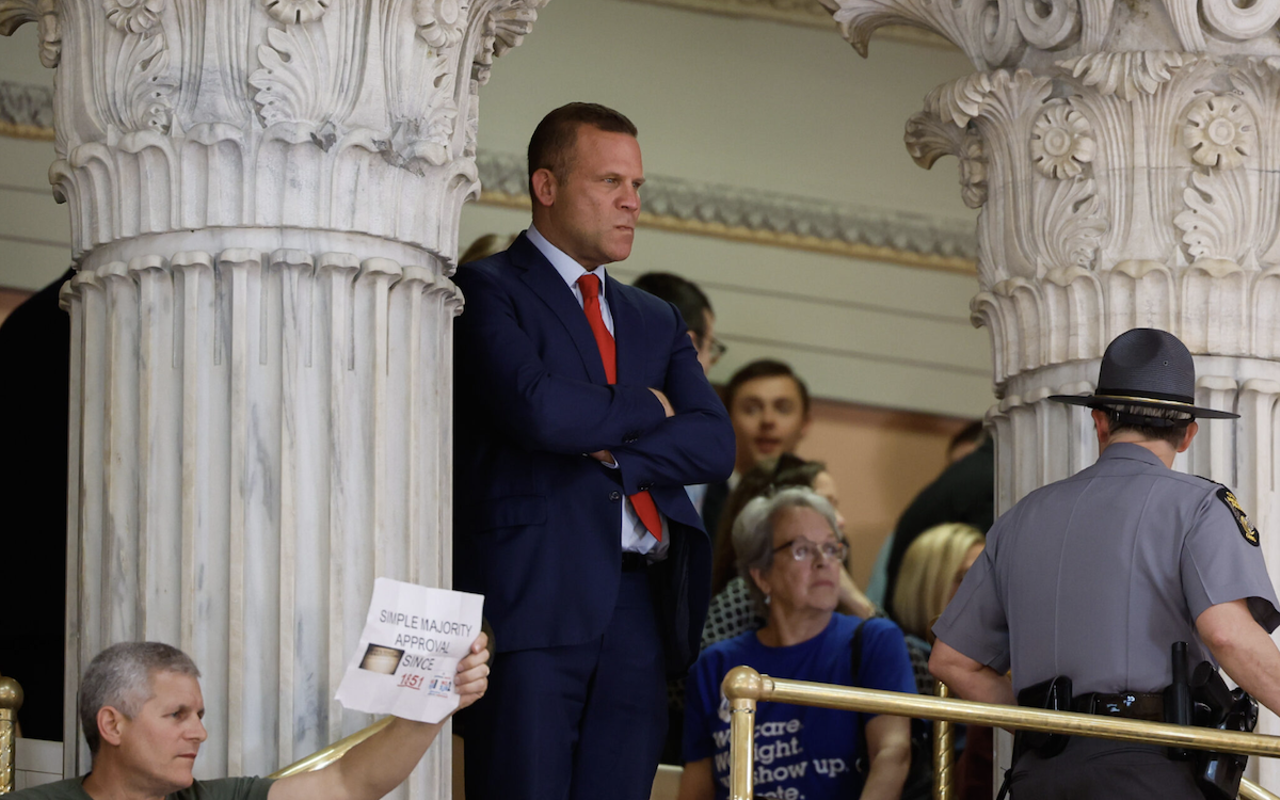
Photo: Bill Oxford
Bipartisan sponsors in Ohio have once again introduced a bill that would eliminate exceptions for spouses in cases of rape, sexual battery, unlawful sexual conduct with a minor, gross sexual imposition and sexual imposition, and expand circumstances when a person can testify against a spouse.
Members of Ohio’s General Assembly have tried to close a loophole that protects spouses from being charged with sex offenses for years without success.
Bipartisan sponsors have once again introduced a bill that would eliminate exceptions for spouses in cases of rape, sexual battery, unlawful sexual conduct with a minor, gross sexual imposition and sexual imposition, and expand circumstances when a person can testify against a spouse.
State Reps. Jessica Miranda, D-Forest Park, and Brett Hudson Hillyer, R-Uhrichsville, brought House Bill 161 to the House Criminal Justice Committee on Tuesday, May 23, the fourth of such bills since 2019.
Miranda cited statistics from the U.S. Department of Justice and the Rape, Abuse and Incest National Network showing that 28% of sexual assaults are perpetrated by intimate partners, with 55% happening at or near a survivor’s home.
“This is not happening in dark alleys, this is not happening because victims are in ‘the wrong place, at the wrong time,” Miranda said. “This is happening in homes, where everyone should feel safe and secure.”
Ohio remains one of 11 states in which a loophole exists in the law that keeps spouses from prosecution for sexual offenses, with the only exception being when “threat of force or violence” is present.
“I think the goal of the bill and the idea behind the bill is: just because you are married to someone does not mean you can not be a victim of these crimes,” Hudson Hillyer said.
Similar bills have floundered in the legislature, despite also having bipartisan support.
State Sen. Nickie Antonio, D-Lakewood, now Senate Minority Leader, introduced Senate Bill 162 in 2019, seeking to remove the statute of limitations for rape and sexual assault, but also including language to eliminate marital rape loopholes.
Supporters of the bill, such as the YWCA Dayton were bolstered by commitments by state investigators to clear a backlog of rape kits in Ohio as a sign that sexual assault crimes would be a priority.
Despite the support of county prosecutor’s offices, the Cleveland Clinic, sexual assault and rape survivors and other survivor advocates, the bill only received two hearings and never left committee.
In 2021, state Rep. Laura Lanese said “with enough pressure,” House Bill 121 would make it through the General Assembly and eliminate the spousal rape exemption in Ohio law, but that bill failed to make it past the committee stage.
In committee on Tuesday, state Rep. Bill Seitz, R-Cincinnati, asked a question that might indicate work to be done on the newest bill, asking why the bill extends the exemptions to crimes other than rape, such as gross sexual imposition and other “lesser” sexual offenses.
Hillyer argued the other offenses can be considered “allied offenses,” meaning multiple crimes committed through the same conduct, so they should be included in the bill.
This story was originally published by the Ohio Capital Journal and republished here with permission.
Subscribe to CityBeat newsletters.
Follow us: Google News | NewsBreak | Reddit | Instagram | Facebook | Twitter







